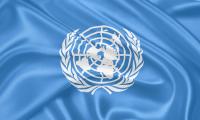Building a bridge between human rights and sustainable development

Representatives of states, UN agencies, companies, women groups, indigenous peoples, NGO’s and human rights organisations will flock to the United Nations headquarters in New York next week during two High-Level meetings, one on human rights and the other on sustainable development. Meanwhile, research from the Danish Institute for Human Rights (DIHR) shows, that the two issues are closely intertwined, and this will be the topic at a side-event organised by the DIHR on 13 July.
Two High-Level events
The 2016 session of the High-Level Political Forum (HLPF) 11-20 July will be the first since the adoption of the 2030 Agenda and the Sustainable Development Goals, which makes it crucial in order to explore and establish precedents for effective and efficient Follow-Up and Review (FUR) processes. The theme of the 2016 Session is “Ensuring that no one is left behind”, which reflects the fundamental human rights principles of equality and non-discrimination. HLPF is expected to provide political leadership, guidance and recommendations on the implementation of the 2030 Agenda.
As a simultaneous event, the President of the General Assembly, H.E. Mogens Lykketoft, is organising a High-Level Thematic Debate on Human Rights 12-13 July. The debate will focus on the current human rights situation in the world today and highlight how efforts to realise human rights can contribute tothe efforts to promote sustainable development.
In between these two events the DIHR is organising a side-event together with the Office of the High Commissioner for Human Rights, the permanent UN missions of Chile and Denmark and the Global Alliance of National Human Rights Institutions.
Human rights and the Sustainable Development Goals
The side-event "Human Rights in the Follow-up and Review of the 2030 Agenda" will take place on 13 July. It departs from the premise that the 2030 Agenda is based on international human rights. Research by DIHR shows that 92 % of the goals and targets of the 2030 Agenda reflect provisions of international human rights and labour standards. This research has resulted in a human rights guide to the SDG's in five different languages.
It’s our hope that states and other stakeholders will explore the opportunities in our human rights guide to the SDG's.
Moreover, the 2030 Agenda specifies that the Follow-Up and Review (FUR) processes at national, regional and global levels should be guided by the principles of accountability, participation and non-discrimination which is at the core of the human rights-based approach to development. Likewise, human rights monitoring can identify gaps and guide SDG monitoring, while data generated under the SDG’s will help to shed light on the progress in human rights implementation.DIHR has studied the SDG's and the FUR in a comprehensive
on the subject.Purpose and focus
The side-event aims at creating a substantial bridge between human rights and sustainable development by exploring the operational convergence between human rights realisation and sustainable development. The event will thus reinforce the notion that sustainable development and human rights are mutually dependent in ensuring dignity and prosperity in our common vision of leaving no one behind.
More specifically, the high-level speakers at the side-event will discuss how human rights monitoring and follow-up and review of the SDG’s at national, regional and global levels, can be supplementary and mutually reinforcing.
The side-event will take place 13 July. The President of the UN General Assembly, Mogens Lykketoft and the Minister of Justice of Denmark, Søren Pind, will give opening remarks. Among the panellists are the Deputy High Commissioner for Human Rights and the Deputy Secretary-General of the International Labour Organization.
